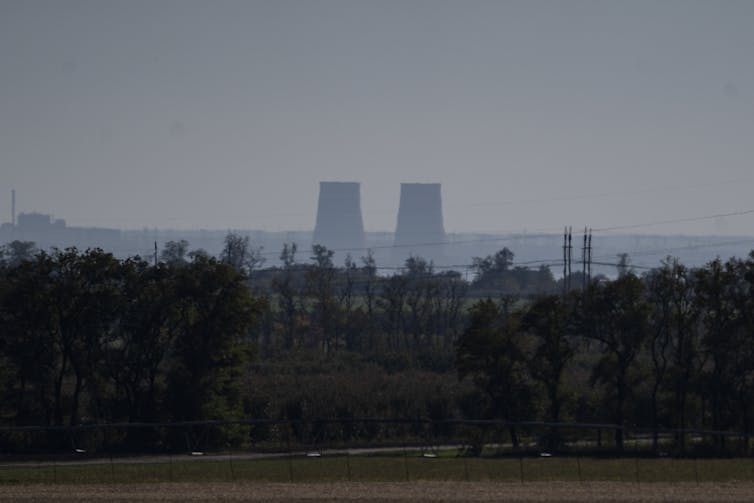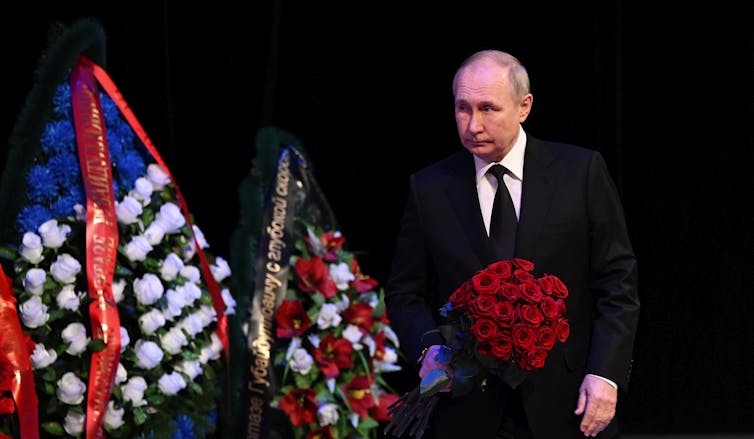In late 2022, a frightening escalation occurred in the war in Ukraine. During a large Russian bombardment operation, a missile struck the Polish city of Prezewodów, six kilometres from the Ukrainian border, killing two civilians.
Ukraine war: Why the missile incident in Poland is a warning of things to come
Condemnation by various heads of state was swift, furious and justified. However, as is often the case with war reporting, blame was laid before essential facts could be verified. Headlines immediately claimed that the strike was of Russian origin, reportedly supported by anonymous senior intelligence officials.
If it had indeed been true, it would have been the first official incursion into NATO territory by Russia since the start of the conflict.
‘An attack against all’
NATO, a military alliance of which Poland is a member, was crafted around the controversial concept of “defence through deterrence” via Article 5 of the North Atlantic Treaty. It states that “an armed attack against one or more … shall be considered an attack against all.”
Effectively, an armed incursion into Polish/NATO territory would then constitute a declaration of war against all other alliance members, including the United States and Canada. With both Russia and three of NATO’s members in possession of vast nuclear arsenals, such a conflict would inevitably escalate into a potentially species-ending nuclear exchange.
Fortunately, cool heads prevailed, and Article 5 has not yet been triggered. Furthermore, within 48 hours of the Polish missile strike, previous reporting was called into question. New evidence suggested that, while the missile may have been Russian-made, its ownership was unknown, at least to the Polish government.
Some American officials say it was likely Ukrainian anti-air defences that caused the casualties.
This however, did not stop several western leaders, most notably British Prime Minister Rishi Sunak, from continuing to lay the blame for the strike on Russia.
Nuclear power plant shelled
If the near-collision between Russian and NATO nuclear forces over Poland was not enough of a nuclear threat, the Russian-occupied Zaporizhzhia nuclear power plant, the largest of its kind in Europe, also came under shelling, according to the International Atomic Energy Agency (IAEA).
As was the case with the missile strike in Poland, finger-pointing between Ukraine and Russia ensued. However, should a meltdown or power outage occur at Zaporizhzhia, it would make little difference to the millions affected by the radioactive fallout or ensuing food insecurity as to whether the initial spark was of Russian or Ukrainian origin.
There have not been reports of shelling near the nuclear power plant in recent weeks, but it’s located in an area occupied by Russia that Ukraine is determined to retake. In other words, unless the IAEA is able to establish a safe zone, it remains in a potential conflict area.

(AP Photo/Leo Correa)
The stakes have never been higher since the outbreak of the conflict. Yet despite these close calls with nuclear Armageddon, the Canadian federal government continues to support NATO and its partners in funding the conflict via weapons shipments.
It has so far also been in alignment with the western position of complicating attempts at a negotiated settlement, calling for the vanquishing of Vladimir Putin and the Russian armed forces as opposed to negotiation — effectively advocating for regime change.
That means the responsibility of diplomacy falls upon the citizens of NATO nations and civil society, for they must not allow those in power to use incidents like what happened in Poland, or any future incidents, as tools for further escalation of the conflict.
Toning it down
Canada, and the West at large, should tone down anti-Russian and regime change rhetoric because it reaffirms Putin’s propaganda that the West wants to destroy Russia. It also complicates peace negotiations.
Also, a post-Putin Russia may not necessarily be an easier negotiating partner given the growing power of hardliners in Moscow.

(Dmitry Azarov, Sputnik, Kremlin Pool Photo via AP)
Pressing for regime change also increases the likelihood of nuclear use, as Russian doctrine explicitly states that Russia will use nuclear weapons when the country is threatened. Simply put, it is not in Canada’s interest, nor even in Ukraine’s, to risk nuclear Armageddon by pushing for Russian regime change.
Canadian civil society ought to call upon our government for cooler heads to prevail — and for peace to become the primary objective of Canadian policy on the war in Ukraine.




